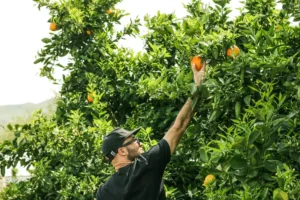Life will never be as inexpensive as it is when you are young. Part of that is due to life responsibilities; part of that is due to life experiences. When I was 21, I backpacked around Europe and considered that great fun. In middle age, I consider anything less than a four-star hotel with an attached spa to be roughing it. My motto? Been there, done that, want something more comfortable now.
So when you are young and relatively carefree, how should you view the money you earn? Some would say you should squirrel away as much as you can now, because whatever you can save will compound much more interest across the years than if you try to catch up later in life. That is true, to a point. Others would hold out the YOLO principle and encourage you to sample as much of life as you can. Again, that is true — to a point.
Then there is the story of my father. When he was 21, he was flying the first jet fighters in the Korean War. He was nearly 10 years away from meeting my mother, but when he found a good deal on a diamond, he purchased it and held it for his future wife. A few years later, he started saving money for his children’s college education. Again, he was a few years away from even meeting my mother. But his foresight as a young man ensured I would graduate from college with an invaluable gift: no student loans to repay.
Nobody knows what life will hand them. But I can assure you this: Whatever it is will cost more than you anticipate now. These expenses could come in the form of a tragedy or an opportunity. Or both. Establishing a pattern of saving now will serve whatever comes about in the future.
But that financial foresight doesn’t mean that you put your life on hold today, waiting to enjoy something better in the future. We are creatures who are designed to live in the moment. In the biblical view, we are meant to live our lives one day at a time until the day we see our Lord face to face. Each day, we receive incredible gifts from our heavenly Father to see and savor. But this is not the YOLO principle at work. The Bible shows us there is a response that should be elicited from the gifts we receive. As the apostle Paul writes in 1 Timothy 6:17, “Instruct those who are rich in the present age not to be arrogant or to set their hope on the uncertainty of wealth, but on God, who richly provides us with all things to enjoy” (HCSB).
Our hope is to be set on the God who gives incredible riches for our delight! It’s mind-blowing how vastly blessed we are. So even if you have already cultivated the discipline of saving money, this passage directs your hope away from the numbers in your bank account to the One who provided those funds. And if you need to be introduced to a savings account, this passage also redirects you away from both condemnation for past failures and your previous pattern of excessive spending that comes from forgetting the One who gave it to you.
Stewarding Generosity
In 2014, the U.S. government determined that an individual with an income of $11,670 was at the federal poverty level. On the Global Rich List, that person still ranks in the top 15 percent of the world’s richest people by income. Who are the “rich in the present age”? You’re looking at them. Therefore, the next two verses that instruct the rich are applicable to us now: “Instruct them to do what is good, to be rich in good works, to be generous, willing to share, storing up for themselves a good reserve for the age to come, so that they may take hold of life that is real” (1 Timothy 6:18-19).
In other words, the riches we receive from God are to be invested in a heavenly portfolio. We are merely stewards of what we have here, multiplying those gifts for eternal reward. Jesus makes this clear in the parable of the talents in Matthew 25:14-30. This parable helps us understand that whatever we have received is supposed to be multiplied for God’s glory.
Balanced against the idea of enjoying the gifts God richly provides, we can find a way of thinking about money that is applicable right now and for the rest of our lives. Singleness is not a license for self-centered consumption of God’s gifts, nor is marriage a reason to stop enjoying life. Being young is not blanket permission for frittering away money. Nor is advancing age a reason to be tight-fisted. Every season and status in life is subject to the kingdom investment principle.
Let’s say you receive an unexpected bonus. There are several ways you could look at this windfall. All start at the same place though: Receive the provision with gratitude. Recognize you have something to enjoy because your God “richly provides us with all things to enjoy.” So after thanking God, you are at liberty to enjoy your gift in a variety of ways. Perhaps you’d like to buy new dishes or flatware to create Pinterest-worthy tablescapes. Just because you are single doesn’t mean you have to wait for these items to be given to you at a bridal shower. You can buy them now and be generous in your use of them. Invite others to enjoy them with you as you serve them a meal. Multiply what you have received to make others feel special. Multiply what you have received to make others feel special.
Or perhaps after thanking God for this windfall, you think about how to be generous with what you have received and you realize you want to tuck most of it away for the future you are praying for — the home you could own, the wedding you are praying for, the children you want one day. Saving for these dreams is not at all wrong. It’s an investment in those who will one day receive your hospitality in that home, be married to you, or be parented by you. Should God grant you these prayers, you will be very glad for this disciplined saving. And if in time you see that God has led you toward a different future, you will still have a cushion to provide for yourself and be generous toward others.
Then there’s the matter of outstanding debt. Nearly every financial counselor would recommend retiring debt as quickly as possible and shoring up an emergency fund to cover a few months’ living expenses. Could this bonus be something to relieve the burden of debt? Is that a reason for giving thanks to God?
Ultimately, when thinking about money, the goal is to think like a wise investor. Professional money managers think in terms of a diversified portfolio. So should you. Your asset classes should include more than saving and spending. Your asset classes should reflect a Kingdom investment strategy — generous infusions in God’s church, His people who are in need, and those who are reaching and serving a broken and dying world. The Bible promises that this generosity will be richly rewarded in the age to come.
Trusting God for Daily Bread
But the challenge for most of us is not the unexpected windfall; it’s the daily grind of making ends meet. It’s the challenge of being generous to someone else when it really costs you. It’s the ongoing prayers for provision that make you sound whiny even in your own ears. It’s learning how to trust God with the money that He gives you and believing that He is a God of abundance and not a God of scarcity — that He does not run out of blessings or patience in hearing your prayers.
Over the course of my life, I’ve been a homeowner, and I’ve been a renter. I’ve bought used cars, and I’ve bought new cars (actually, just one new car and I’m driving it into the ground right now). I’ve been an employee, and I’ve been the boss. I’ve worked for a salary, and I’ve been the company rainmaker. I’ve had healthy savings accounts, and I’ve lived by faith. There are blessings and burdens in all of these scenarios. But one thing I have never regretted: being generous as God presents the need. You simply can’t outgive God. Whatever I have parted with to bless someone else has always been returned to me in one way or another.
In all those scenarios, I’ve also had one constant regret: that I did not save more money. My father’s example of saving for his future expectations blows my mind even now. He didn’t have a guarantee that he would get married or have children, but he knew if he did, he would need to provide for his family. He tried to teach the value of saving to me when I was a child by only giving me part of my allowance and putting the remainder in a savings account. When I graduated college, I got ahold of those funds and blew through them right away. Unfortunately it took a long time for any sort of financial savvy to kick in for me.
Looking back, I wish I could shake my 20-something self by the shoulders and sternly say: “You are a financial fool. Your future will be here before you know it. Have you saved for it?” I wish I had practiced the discipline of living on only 70 percent of my income, leaving margin for 10 percent of my money for tithes, 10 percent for routine saving, and 10 percent for the unexpected — which could be good opportunities or bad experiences. But I would also say to my 20-something self: “The God you do not yet know or serve is fully trustworthy. One day soon you will learn that and begin worshiping Him. From that moment on, keep your eyes open for the needs He puts before you, for you will find there is immense joy in giving. The provision you will receive is not just for your consumption; it is for your investment in what carries into eternity.”
Today I run my own small company, and it has required a lot of my personal investment — which I trust is a calculated risk. But there’s nothing quite like being an entrepreneur for learning to trust God for daily provision, not to mention the provision of employees and vendors. Because of that wild ride, I have a “board of gratefulness” at my desk, where I pin notes to remind myself of answered prayers for our company. This helps me to remember that, in the end, I am going to be evaluated on a completely different strategy than what my financial statements look like now. Whether or not this company succeeds or shutters, I will have to give an account about how I multiplied what was given to me. If I am successful, I will hear those precious words: “Well done, good and faithful servant. You have been faithful over a little; I will set you over much. Enter into the joy of your master” (Matthew 25:23).
I want that joy, and I suspect you do, too. We are to be faithful over a little now. But if we each aim for that accolade, we will be the wisest investors around — joyfully multiplying eternal treasures.
Get a free online budgeting tool from Focus on the Family at www.focusonthefamily.com/mvelopes
Copyright 2014 Carolyn McCulley. All rights reserved.











